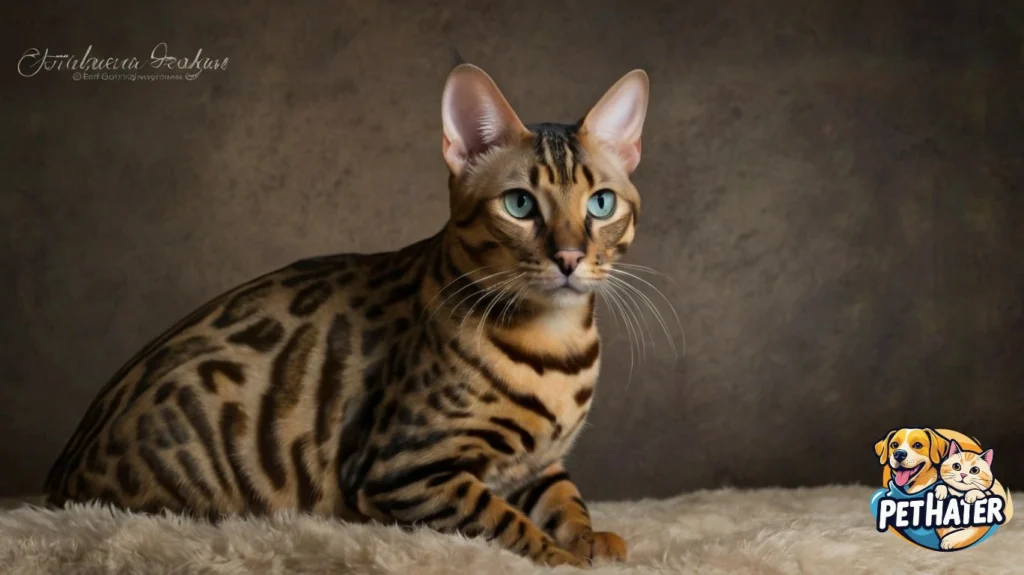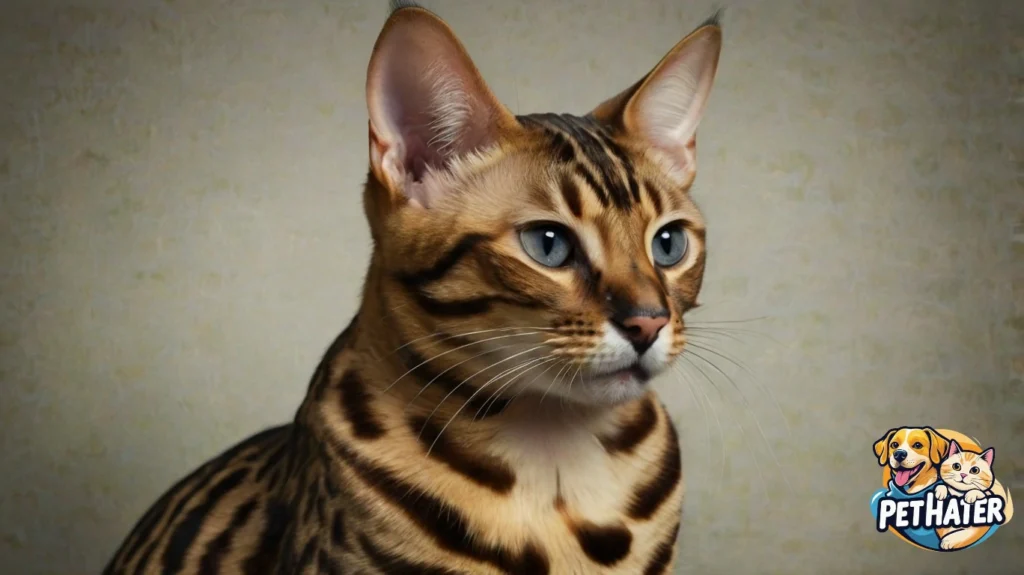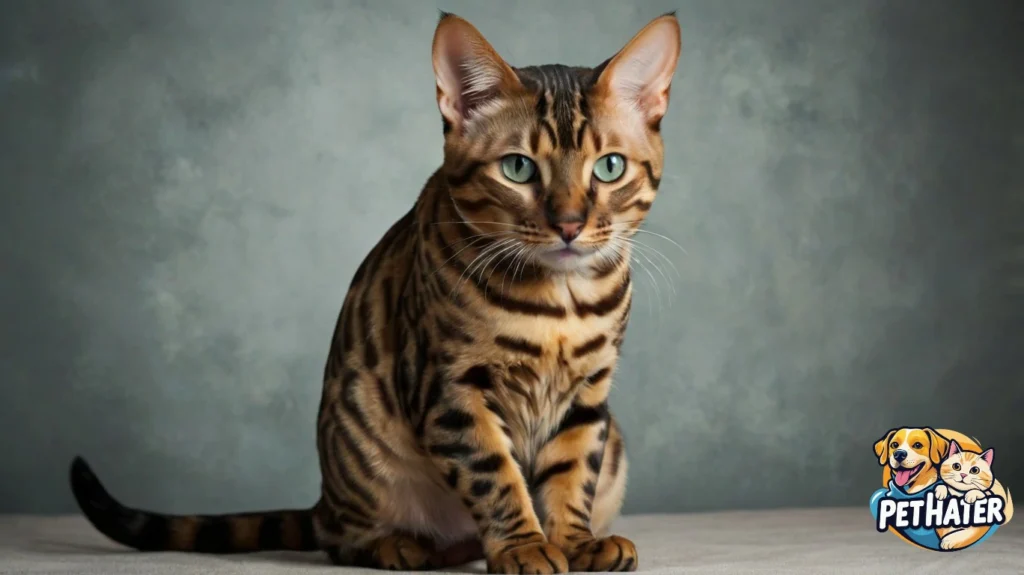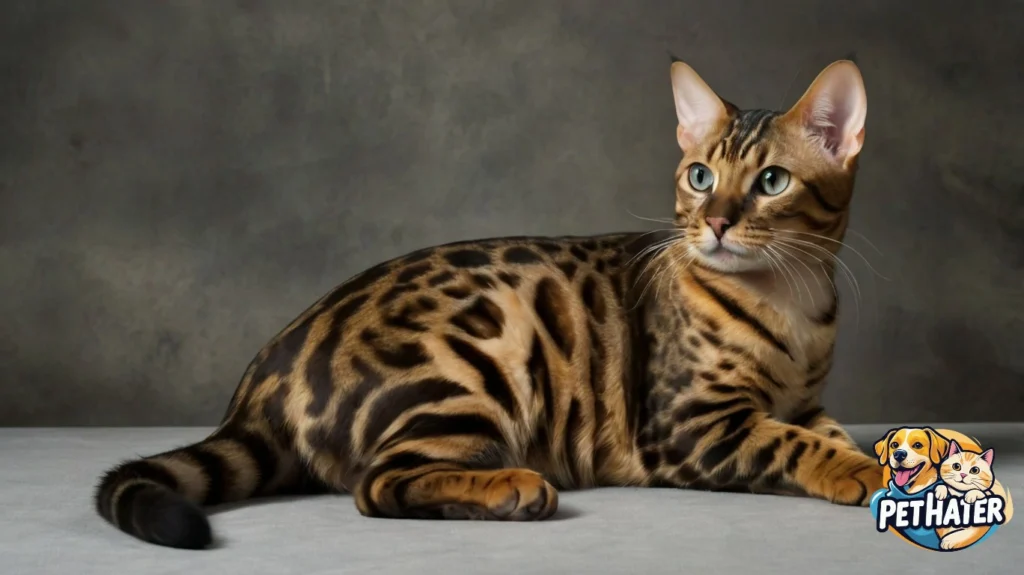Introduction to the Bengal cat
The Bengal cat is one of the most fascinating and visually stunning domestic cat breeds in the world. With its leopard-like appearance, energetic personality, and intelligent behavior, the Bengal has captured the hearts of cat lovers globally. But beyond the beauty lies a breed with unique traits, care needs, and a compelling history.
In this comprehensive guide, we’ll explore everything you need to know about Bengal cats — from their origin and personality to grooming, diet, health, and more.
Origin and History of the Bengal Cat
The Bengal cat breed was developed in the United States during the 1970s. The breed’s creator, Jean Mill, crossbred an Asian leopard cat (a small wild feline) with domestic cats such as the Egyptian Mau. The goal was to create a domestic cat with the exotic appearance of a wild leopard.
By the 1980s, breeders had succeeded in creating a stable, domestic breed with the desired wild look and gentle temperament. The Bengal cat was officially recognized by The International Cat Association (TICA) in 1983.
Fun Fact: The breed gets its name from the Asian leopard cat’s scientific name, Prionailurus bengalensis.

Bengal Cat Appearance
Bengal cats are instantly recognizable by their striking coat and muscular build. They look wild, but they’re 100% domestic.
Key Physical Traits:
- Coat Pattern: Rosetted spots, rosettes, or marbling. The most common is the spotted pattern that resembles a leopard.
- Coat Texture: Short, sleek, and incredibly soft — often described as “pelt-like”.
- Colors: Brown, snow, silver, charcoal, and blue are common. The brown spotted Bengal is the most popular.
- Eyes: Almond-shaped and typically green or gold.
- Size: Medium to large. Males can weigh between 10–15 pounds, while females usually weigh 8–12 pounds.
- Build: Athletic, lean, and muscular — built for agility and speed.

Bengal Cat Personality and Behavior
If you’re looking for a calm lap cat, a Bengal might not be the right choice. Bengals are high-energy, curious, and intelligent cats that love to play and explore.
Key Personality Traits:
- Highly Active: Bengals need plenty of physical and mental stimulation.
- Intelligent: They can learn tricks, open doors, and solve puzzles.
- Vocal: Bengals tend to be talkative and expressive with a wide range of sounds.
- Affectionate: While not typically clingy, they form strong bonds with their owners.
- Social: They enjoy human company and often get along well with dogs and other pets.
Many Bengal owners describe their cats as having a dog-like personality — they may even play fetch or walk on a leash.

Bengal Cat Care and Maintenance
A. Grooming
One of the best parts of owning a Bengal cat is the low-maintenance grooming:
- Brushing: Once a week is enough to keep their coat shiny and healthy.
- Bathing: Rarely needed, unless they get into something messy.
- Nail Trimming: Regularly trim their nails, like any other cat.
- Dental Care: Brush their teeth weekly or provide dental treats to prevent oral diseases.
B. Exercise and Enrichment
Bengals need lots of exercise and mental stimulation:
- Invest in cat trees, climbing shelves, and interactive toys.
- Play with them daily using feather wands, laser pointers, or balls.
- Consider clicker training to teach tricks and commands.
Without enough stimulation, Bengals can become bored and develop destructive behaviors.

Diet and Nutrition
A high-quality, protein-rich diet is crucial for Bengals due to their active lifestyle.
Diet Tips:
- Choose grain-free cat food with meat as the first ingredient.
- Raw or wet food diets are often recommended but consult a vet before switching.
- Make sure your Bengal has access to fresh water at all times.
- Avoid overfeeding; obesity can reduce their lifespan and activity level.

Bengal Cat Health and Lifespan
Common Health Issues:
- Hypertrophic Cardiomyopathy (HCM): A common heart disease in many cat breeds.
- Progressive Retinal Atrophy (PRA): An inherited condition that can cause blindness.
- Hip Dysplasia: Less common but possible in Bengals.
- Luxating Patella: A knee joint issue that can cause limping.
Lifespan:
With proper care, Bengal cats can live between 12 to 16 years — sometimes longer.
Regular veterinary check-ups and early detection of health issues are key to a long, healthy life.

Are Bengal Cats Good Pets?
Yes — but they’re not for everyone.
Pros:
- Exotic appearance
- Energetic and playful
- Intelligent and trainable
- Friendly and sociable
Cons:
- High energy (not ideal for calm households)
- Require daily engagement and play
- Can be vocal and demanding
- Might not tolerate being left alone for long hours
Bengals thrive in homes where they receive attention, enrichment, and plenty of playtime.

Bengal Cat Price and Adoption
Bengals are among the more expensive cat breeds due to their unique lineage and appearance.
Bengal Cat Price:
- Pet quality Bengal kittens: $1,000 to $2,000
- Show quality or breeding cats: $2,500 to $5,000+
- Adoption fees from rescue shelters: $100 to $500
Be sure to buy from a reputable breeder who tests for genetic conditions and prioritizes the health of the cats.
Alternatively, consider adopting a Bengal from a cat rescue or breed-specific organization.

Bengal Cat FAQs
Q: Are Bengal cats aggressive?
A: No. Bengals are not inherently aggressive. They are active and assertive but usually friendly when well-socialized.
Q: Can Bengal cats be left alone?
A: Bengals don’t like being alone for long periods. They may become bored or anxious. Consider having a second pet as a companion.
Q: Do Bengal cats get along with dogs?
A: Yes! Bengals are often dog-friendly and enjoy playmates.
Q: Are Bengal cats hypoallergenic?
A: No cat is truly hypoallergenic, but Bengals produce less dander than some breeds, making them a better option for mild allergy sufferers.
Conclusion
The Bengal cat is more than just a beautiful feline — it’s an intelligent, playful, and affectionate companion. If you’re ready for an active, engaging pet that will keep you on your toes, a Bengal might be your perfect match.
Whether you’re drawn to their wild looks, smart personality, or dynamic energy, Bengal cats offer a one-of-a-kind experience for the right cat owner.
